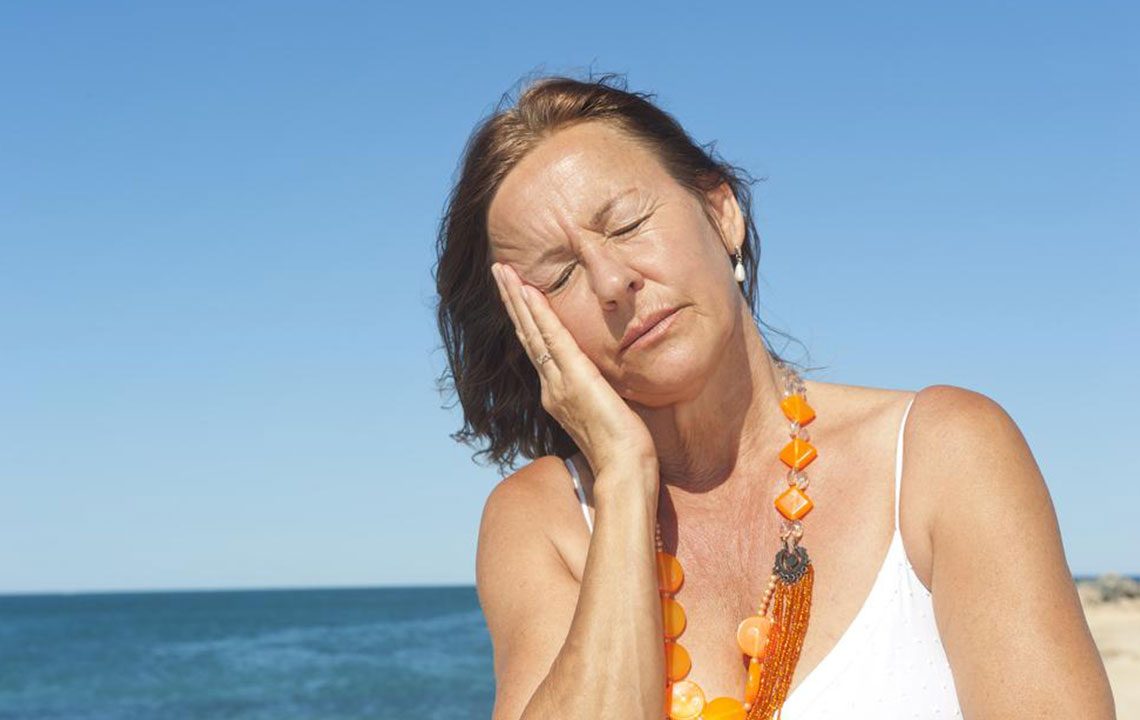Here Is a List of Top 12 Migraine Triggers
A headache disorder, migraine is characterized by frequent headaches that can be moderate to severe. Migraines are those types of headaches that are pulsating in nature and affect one-half of the head. Also, migraines can last for up to 72 hours.
Migraines are believed to be a mixture of environmental and genetic factors. Changing hormones are said to be one of the top migraine triggers. A post-puberty migraine usually affects women more than men.
People experience a migraine due to some reasons. Some of the reasons include food habits, strong scent, flickering lights, weather changes. Migraine triggers are different for different individuals.

There are four phases of a migraine. Prodrome is an onset of a migraine. It lasts for two hours or two days. Its symptoms include altered mood, irritability, depression, euphoria, and fatigue. The second phase is called an aura which causes visual disturbances and partial alteration in vision which might cause difficulty to the person to read, write or drive. Auras occur in 30-40 percent of the people who suffer from a migraine.
Pain phase is a chronic headache that is unilateral, throbbing and severe in intensity.
Let us separate top migraine triggers based different factors:
Environment
A migraine can occur due to specific environmental conditions, both natural and man-made. Strong perfume smell in office place or other public places can trigger a migraine. For some people, flickering lights and movie screens in a darkened theater can cause a migraine. One of the top migraine triggers are the headlights flashing from the opposite lane of the highway.
Stress
Stressful emotions such as anxiety, sadness, worry, and shock release certain chemicals in the brain which leads to headaches, thus making them one of the top migraine triggers.
Menstruation
This is one of the common migraine triggers in women. Migraine attacks occur a few days before the onset of menstrual cycle. Some studies suggest that it is the drop in the estrogen level that causes migraines. Women who are nearing menopause experience fluctuations in estrogen levels. This can also trigger a migraine.
Lack of sleep
Being one of the top migraine triggers, insufficient sleep causes a chronic headache. Chane in work schedule or jet lag which changes the body cycle can induce migraine attacks.
Food ingredients
Food ingredients or additives such as artificial sweeteners and flavor enhancers like monosodium glutamate can trigger a migraine. Some studies concluded that MSG could trigger pain in the face or head. Thus, it is best to avoid them.
Highly caffeinated beverages
Some people experience migraine attacks due to consumption of highly caffeinated beverages like coffee or energy drinks. There are a number of over-the-counter medicines, which contain a high amount of caffeine, which could also cause a migraine. Hence, read the composition of medicines before buying them if you have previously experienced migraine attacks due to caffeine.
Medication overdose
Since we are talking about medicines, overdose is one of those factors that is triggered one of the top migraine triggers. Analgesics are more likely to develop a chronic migraine in a person.
Alcohol
Being one of the most common triggers, alcohol also induces migraine attacks. As compared to other sources of alcohol, red wine is more likely to trigger a migraine.
Physical activity
Almost 40 percent of migraine sufferers experienced migraine attacks due to intense or excessive exercise. These patients reported that their headaches began with neck pain.
Food habits
Eating certain foods or lack of it can cause migraine attacks. Some of the top migraine triggers include alcohol, chocolate, and caffeine. Other foods associated with a migraine include cheese, salami, and food additives. It is important that you keep tabs on your eating habits. Be aware of foods that cause you a migraine. Most importantly avoid skipping meals as a migraine and glucose level in the blood are indirectly related, and low levels of the same can also induce a chronic headache in the long run.
Hunger and dehydration
Failing to drink enough water and keeping the body hydrated is linked with a chronic headache.
Weather change
Irregular changes in weather are also linked as one of the top migraine triggers. Changes in weather pattern from sunny to humid or vice versa also induce migraine attacks.
One of the best ways to treat a migraine is to work and improve the conditions which trigger a migraine. Have a healthy diet, limit caffeine intake, get enough sleep, and learn to cope with stress. While you include these habits, do visit your doctor for treatment and medications if the migraine attacks are persistent.

